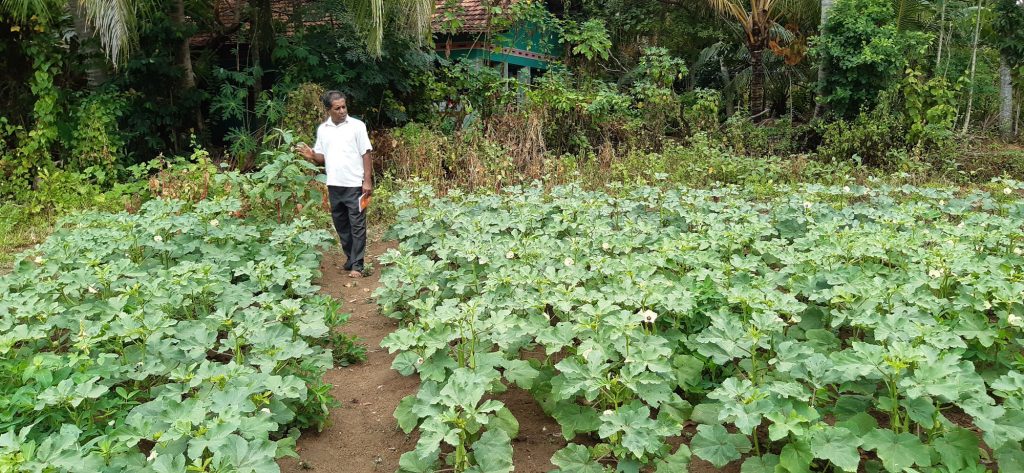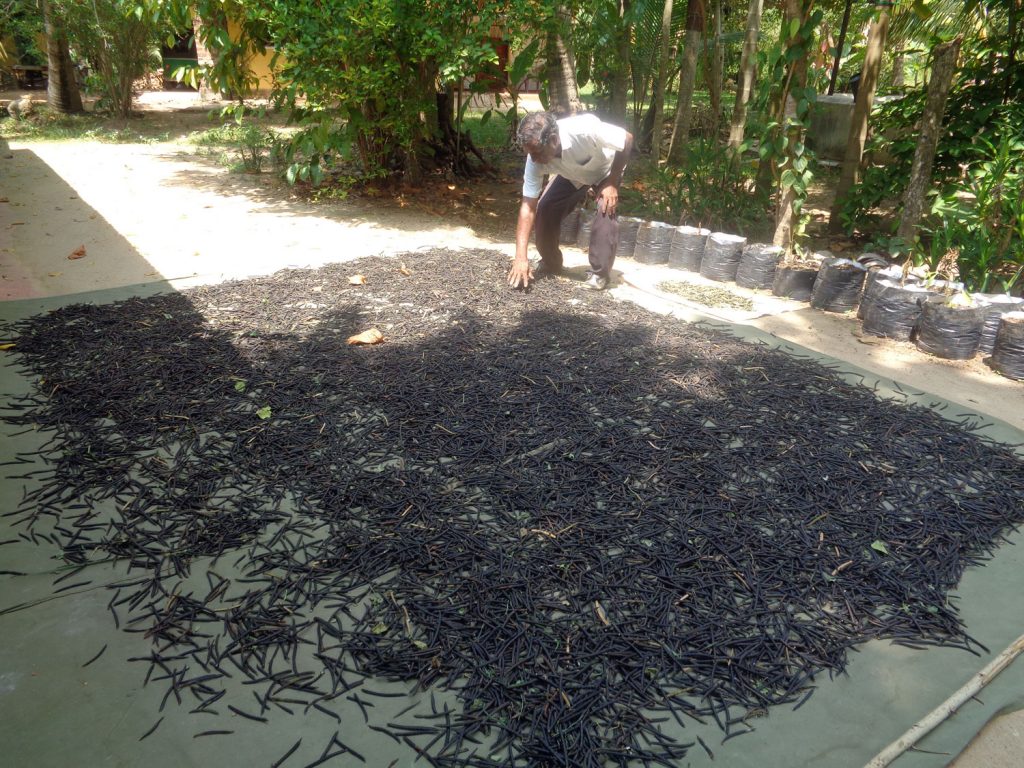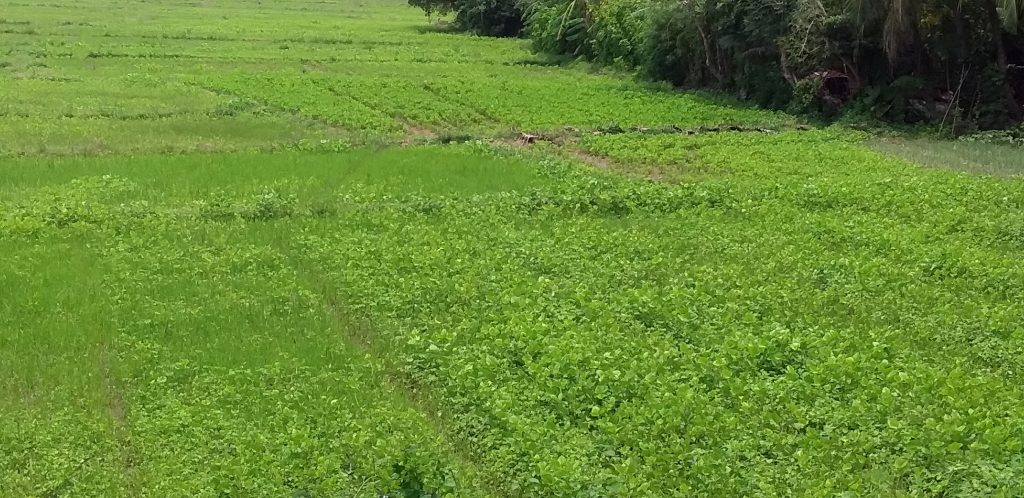45 days of magic-Green Gram cultivation during the mid-season
By Ganga Kariyawasam
Extremes in weather events and an increase in the ambient temperatures severally affect agriculture in Sri Lanka. The dry zone farmers face changes in rainfall patterns lead to extreme events; floods and droughts, resulting in reduced agricultural productivity. Under these conditions, many farmers tend to engage in other livelihood activities for their survival without relying on agriculture.
Farmers used to cultivate Yala (May to August) and Maha (November to February) seasons leaving the fields abandoned in the remaining four months. These phases in between the main two seasons called Mid-season, which is a two-month period. The mid-season cultivation is practiced in Sri Lanka successfully but was new to the Ehetuwewa area in the Kurunegala District.
In this backdrop, a group of farmers in Hunugallewa, Ehetuwewa, trialed out green gram cultivation in mid-season, after “Maha” season in 2018. The leader of this team is R.M. Ranbanda; a retired principal, who’s land is located in the Hunugallewa tank commanding area. However, some farmers did not have faith in this new method of cultivation. Few others didn’t bother even trying anything new. As a leader of the farmer community, and as an educated and responsible person, Ranbanda determined to go ahead with the instructions given by the Department of Agriculture.
Together with fellow farmers, Ranbanda cultivated green grams in early March following paddy harvested at the end of February 2019. Each farmer received 3kg of green gram seed material free of charge through the Department of Agriculture, along with instructions to cultivate. 3kg of seed material is sufficient for a quarter acre. Ranbanda was able to cultivate half an acre, since he received another 3kg of seed green gram, from a farmer who lost his interest later on.
Green gram is a 45-day crop. Thus, Ranbanda was able to get the first harvest on 16th April, the second harvest on 2nd May and the third was on 4th June. He was able to harvest around 110 kg of green grams in total. He sold around 90kg; the best quality harvested during first and second yield for 205 rupees per kg while keeping the rest for family consumption and to share with friends and relatives.
“This is a very successful method; we generated an income without a cost; we just spread seeds to the field of stubble just after paddy harvest. After 45 days we took the green gram harvest. It was like magic to some of our hesitated farmers. Now all the farmers are willing to practice this during the next season.”
Sawing seeds to the field of stubble without land preparation called “Ipanelle Wagawa”, which is a recommended practice by the Department of Agriculture. The result of this intervention as follows.and its consequences on dry zone agriculture in Sri Lanka to suggest possible adaptation measures.
Therefore this study focuses on the climate change effects on Northeast monsoon and its consequences on dry zone agriculture in Sri Lanka to suggest possible adaptation measures.
“Once I harvested green gram, I planted ladies’ fingers, long beans, groundnut and green chilies for Yala season”, said Ranbanda. “I put no fertilizer, but you can see the growth of my crop is. Since it is a legume, my land got fertile,” he added that with a smile. This bonus factor is a good message to all the farmers, which is absolutely an attractive way.
Ranbanda is a change agent, who implemented the intervention successfully.
About the Climate Resilient Integrated Water Management Project
The Sri Lanka Red Cross Society mobilizes farmer communities in the dry zone to adopt climate-resilient agricultural activities. The Climate Resilient Integrated Water Management Project is a 7-year project aimed at strengthening the resilience of Smallholder Farmers in Sri Lanka’s Dry Zone to climate variability and extreme events.
The Project is financed through a grant received from Green Climate Fund (GCF) while the Government of Sri Lanka has committed to co-finance the activities identified under the Project as well.
Ministry of Mahaweli Development and Environment, also an implementing partner for this project with the technical assistance of the United Nations Development Programme (UNDP) and work with a number of government institutions to deliver the project outputs and activities while measuring the impact.
#FacesOfClimateChange


